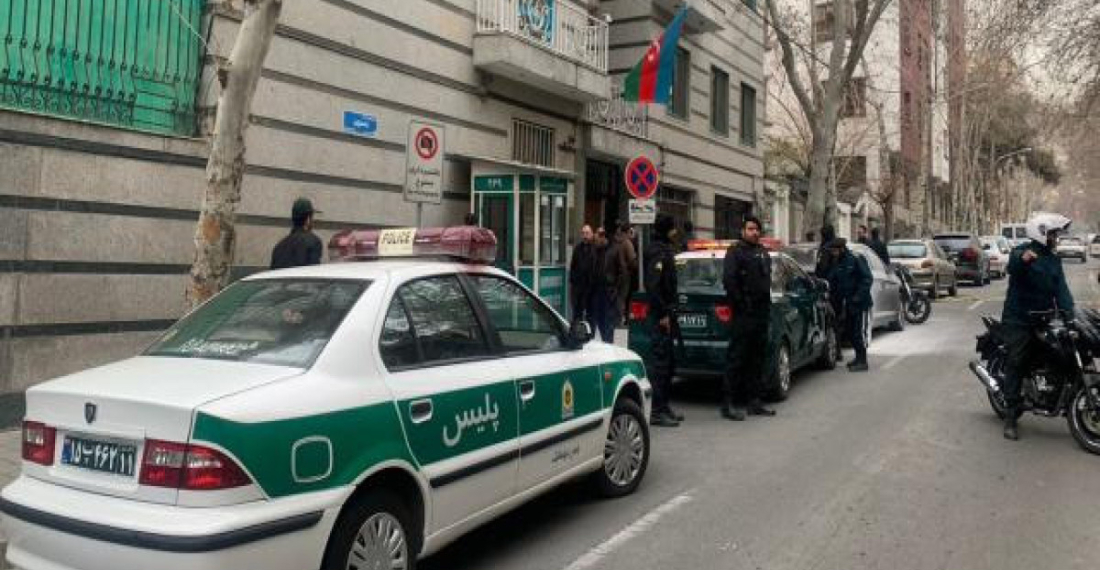At least one security officer was killed and two others injured when a man armed with a Kalashnikov attacked the Azerbaijani Embassy in the Iranian capital, Tehran.
The incident happened on Friday morning as the man tried to force his way into the diplomatic mission.
Azerbaijan has strongly condemned the attack and criticised Tehran for not protecting its diplomatic mission. The Iranian Ambassador was summoned to the Azerbaijani foreign ministry in Baku and told that the attack was the consequence of a systematic anti-Azerbaijan campaign. There have been outbursts of anti-Azerbaijani sentiment in some sections of the Iranian media which appear to have the blessing of at least some elements of the Iranian regime.
There has been widespread condemnation of the attack by the international community, including the EU, the US and many European and Middle East governments.
commonspace.eu political editor said in a comment that the attack on the Azerbaijani embassy in Tehran is the latest in a series of unfriendly or hostile acts towards Azerbaijan originating from Tehran that seem to be encouraged by at least some elements of the Iranian Shia clerical regime. The blatant attack against a foreign embassy is however a very serious matter which is why the condemnation from the international community has been unanimous. Tehran, already a paraiah in the international system, appears to be determined to isolate itself even further from civilised countries, and through its actions shows its true colours as a rogue state.






